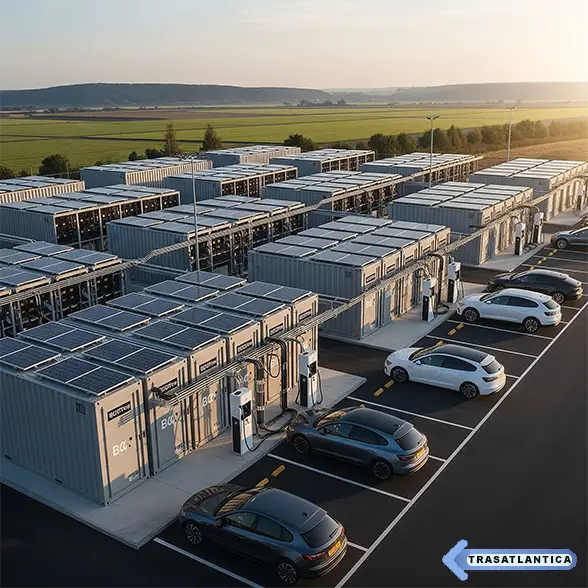Energy Storage is a crucial component in advancing electric vehicle technologies, supporting longer driving ranges and faster charging times. Improvements in battery design and materials have significantly enhanced energy density and durability, which in turn influence the adoption rate of electric vehicles. Moreover, innovations in storage systems contribute to the development of smart charging infrastructures. These technologies allow better integration with the power grid and facilitate renewable energy use. Understanding the role of energy storage provides insight into the future of sustainable transportation.
Energy Storage Revolutionizing Electric Vehicle Performance
Electric vehicle performance heavily depends on advances in energy storage solutions. Researchers focus on increasing battery capacity while reducing weight and cost. These improvements result in vehicles capable of longer distances on a single charge, addressing range anxiety issues. Additionally, faster charging technologies reduce downtime, making electric cars more practical for everyday use. Integration of advanced battery management systems optimizes safety and lifespan, ensuring reliability. Together, these factors promote broader acceptance of electric vehicles in various markets.
Strategic Role of Energy Storage in Charging Infrastructure
The expansion of electric vehicle charging networks relies on efficient energy storage integration. Storage systems help balance load demand and reduce strain on power grids during peak hours. By storing energy during off-peak periods, they facilitate smoother and more reliable charging experiences. Furthermore, combining storage with renewable sources like solar and wind reduces carbon footprints. Smart grid technologies enable dynamic energy management, enhancing grid stability and resilience. This synergy accelerates the transition toward cleaner and smarter transportation ecosystems.
Innovations Driving Sustainability in Electric Vehicle Storage
Ongoing research explores alternative materials and designs to improve storage sustainability. Solid state batteries and flow battery technologies offer potential benefits including higher safety and longer lifecycles. Recycling and second-life applications extend battery usability, reducing environmental impacts. Manufacturers increasingly prioritize eco-friendly production processes and supply chain transparency. These efforts align with global sustainability goals, fostering responsible growth in electric mobility. As a result, energy storage continues to evolve as a key enabler for green transportation.
Economic and Environmental Impact of Energy Storage in EVs
Cost reductions in storage technology make electric vehicles more accessible to a wider audience. This affordability boost supports the widespread adoption necessary for significant environmental benefits. Reduced emissions from fossil fuel vehicles contribute to improved air quality and public health. Additionally, local economies benefit from job creation in battery manufacturing and recycling sectors. Policy incentives and subsidies further stimulate market growth. Collectively, these factors create a positive feedback loop supporting both economy and environment.
In conclusion, energy storage plays an indispensable role in shaping the future of electric vehicles. Technological advancements, infrastructure development, and sustainability efforts collectively drive progress toward cleaner and more efficient transportation systems worldwide.
